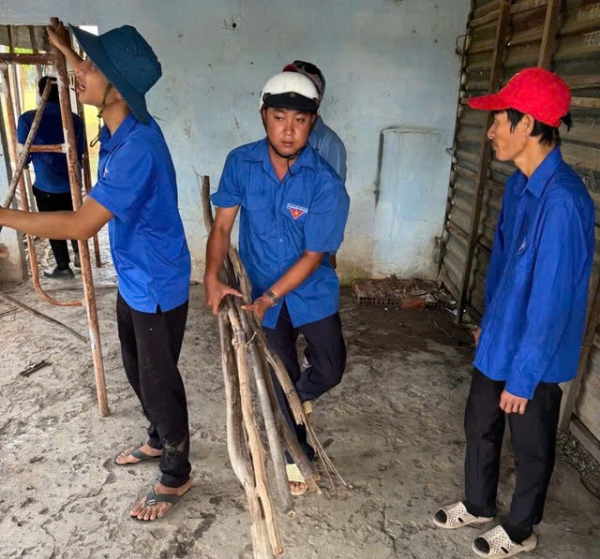Fungal meningitis - a disease that appears after cosmetic surgery and is currently spreading in the US and Mexico - can cause fever, headaches and even death.
The US has recorded at least two deaths and 17 suspected cases of fungal meningitis after cosmetic surgery at clinics in Mexico. The patients contracted the disease after undergoing epidural anesthesia.
According to the US Centers for Disease Control and Prevention (CDC), more than 200 people across the country underwent similar surgeries between January 1 and May 13. All of them could be at risk.
Although the two centers where the patients were infected, River Side and K3 Clinica, were closed, patients continued to show symptoms of fungal meningitis weeks later.
What is fungal meningitis?
Meningitis is an infection that affects the fluid and membranes that cover the brain and spinal cord. According to the CDC, fungal meningitis occurs after a person has a fungal infection that spreads to the brain or spinal cord. Signs and symptoms may appear several weeks after infection and typically include fever, headache, nausea, vomiting, stiff neck, sensitivity to light, and altered mental status.
Many fungi are too small to see with the naked eye, making it easy for people to inhale or ingest the microscopic spores, the CDC says. Fungal meningitis is not spread from person to person. Although rare, outbreaks of fungal meningitis often occur after medical procedures and surgeries.
Diagnosis and treatment
To diagnose fungal meningitis, your doctor will take a blood or spinal fluid sample to test for fungal spores. If the results are positive, you will be given a high dose of an intravenous antifungal medication, such as amphotericin B, which stops the fungus from growing, according to the CDC. Next, you will be given an oral medication, such as itraconazole or fluconazole.
There is no specific recommendation for how long to take the medication. Most doctors will prescribe it based on the patient’s immune system. For example, people with underlying conditions that weaken the body’s ability to fight infection, such as HIV/AIDS, will need to take it longer.

Illustration of fungal spores that cause encephalitis. Photo: Thickstock
Is fungal meningitis fatal?
There is no data on how many people die each year from fungal meningitis, but public health experts say it can be fatal if not diagnosed and treated quickly.
A 2017 study of the Virginia outbreak found that 9.6% of people with fungal meningitis died even after treatment. 100% of untreated patients died.
One of the two patients who died in the current outbreak was Shyanne Medrano, 31, of Houston. She began feeling ill after going to K3 Clinica in March for a Brazilian butt lift. Weeks later, Medrano was admitted to the hospital with symptoms of an infection. Doctors discovered she had a blood clot. She died on May 16, two months after the procedure.
There is currently no vaccine for fungal meningitis. The CDC recommends some preventive measures such as avoiding dusty areas, avoiding activities or close contact with dust without using protective measures such as masks, and cleaning open wounds with warm water and soap to prevent infection.
Thuc Linh (According to ABC News )
Source link


![[Photo] Many practical activities of the 9th Vietnam-China border defense friendship exchange](https://vstatic.vietnam.vn/vietnam/resource/IMAGE/2025/4/16/3016ed3ef51049219574230056ddb741)
![[Photo] President Luong Cuong meets 100 typical examples of the Deeds of Kindness Program](https://vstatic.vietnam.vn/vietnam/resource/IMAGE/2025/4/16/ce8300edfa7e4afbb3d6da8f2172d580)
![[Photo] National Assembly Chairman Tran Thanh Man meets with Ethiopian Prime Minister Abiy Ahmed Ali](https://vstatic.vietnam.vn/vietnam/resource/IMAGE/2025/4/16/c196dbc1755d46e4ae7b506c5c15be55)
![[Photo] Opening of the Exhibition on Green Growth](https://vstatic.vietnam.vn/vietnam/resource/IMAGE/2025/4/16/253372a4bb6e4138b6f308bc5c63fd51)
![[Photo] President Luong Cuong receives Ethiopian Prime Minister Abiy Ahmed Ali](https://vstatic.vietnam.vn/vietnam/resource/IMAGE/2025/4/16/504685cac833417284c88a786739119c)
![[Photo] Opening of the 4th Summit of the Partnership for Green Growth and the Global Goals](https://vstatic.vietnam.vn/vietnam/resource/IMAGE/2025/4/16/488550ff07ce4cd9b68a2a9572a6e035)





























































































Comment (0)